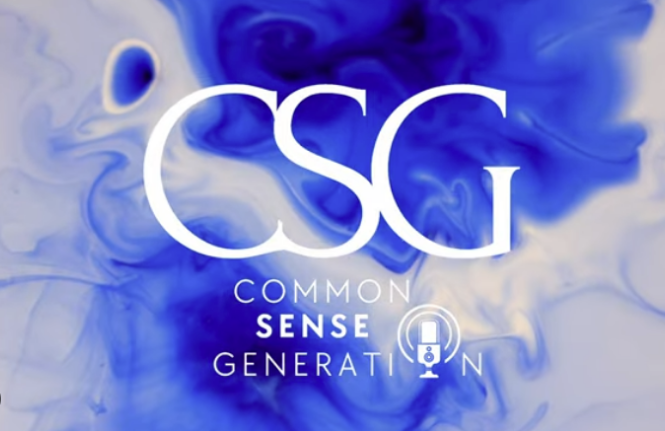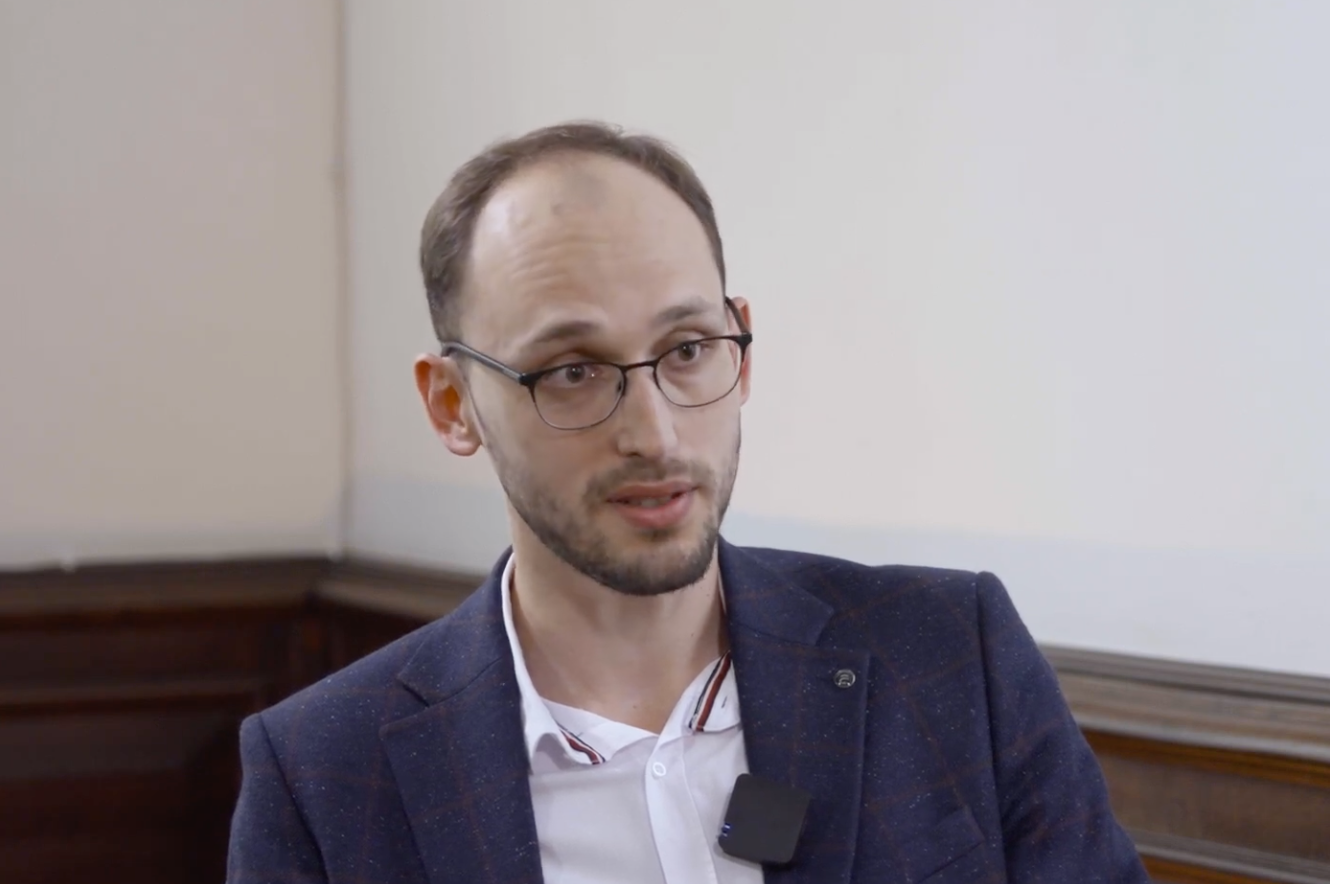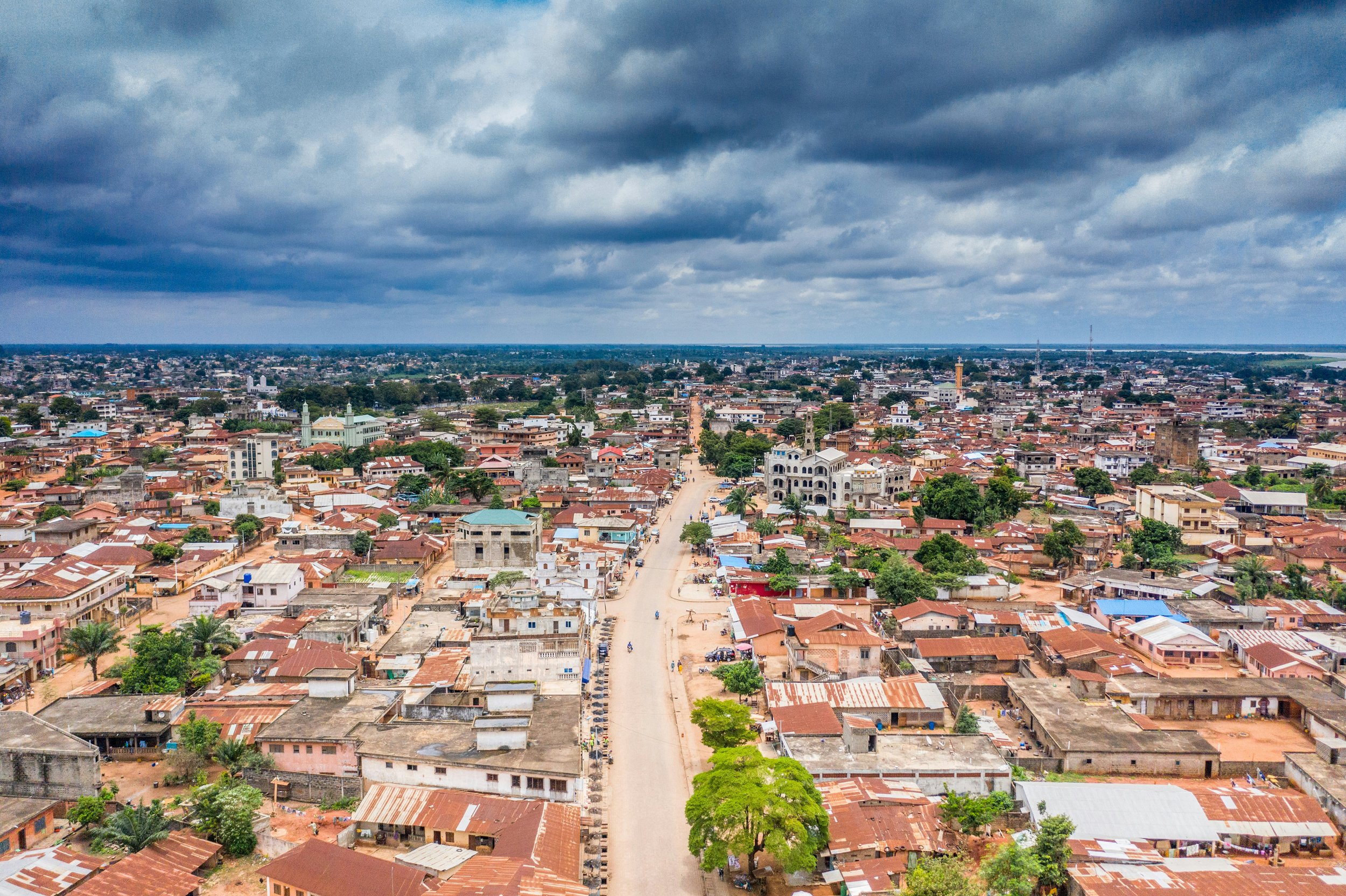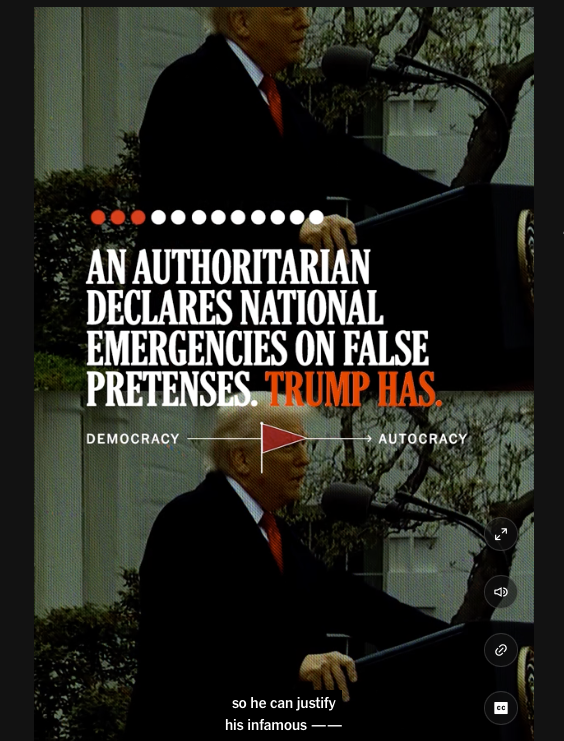
All Content
Welcome to the Institute for the Study of States of Exception (ISSE) main content page, a single source for all posts from the Institute, including commentary on global events, book reviews, academic literature, links to our podcasts, and additional resources. Check back regularly for more content from us.
“Sovereign is he who decides the exception.”
— Carl Schmitt (Political Theology: Four Chapters on the Concept of Sovereignty, 1922)
State of Emergency, with Dr. Maciej Wilmanowicz - the first episode of a two part interview on the Common Sense Generation video podcast series
On the first episode of this two part interview on the Common Sense Generation video podcast series, Dr. Maciej Wilmanowicz introduces himself, describing himself as an intellectual historian rather than a philosopher by training. He discusses the historical roots of emergency powers going as far back as the Roman Republic, he analyzes the paradox of legalizing emergency powers, and he introduces the possibility of existing within a “permanent state of exception.”
Permanent State of Exception, with Dr. Maciej Wilmanowicz - the second episode of a two part interview on the Common Sense Generation video podcast series
On the second episode of this two part interview on the Common Sense Generation video podcast series, Dr. Maciej Wilmanowicz discusses philosopher Giorgio Agamben's concept that modern societies exist in a "permanent state of exception" - where emergency measures and exceptional legal frameworks have become normalized rather than temporary.
He goes on to discuss citizens’ responses to emergencies utilizing several contemporary examples, the challenge of the continuous expansion of related laws and regulations that no one can fully comprehend or navigate, how competing definitions of the “common good“ introduce coherence challenges, and several specific examples are provided which illuminate that final point, running the risk of undermining the very freedoms these powers are meant to protect.
ECOWAS: State of emergency declared across West Africa - SABC News
Economic Community of West African States (ECOWAS) declared a state of emergency across West Africa following a series of recent coups and failed military mutinies across the region. The announcement was made by ECOWAS Commission President Omar Touray during ECOWAS’ 55th session of the Mediation and Security Council held in Abuja on December 9, 2025. On December 8, Nigerian fighter jets and ground troops moved to help restore order after a foiled coup attempt in Benin. Nigerian President Bola Tinubu sent fighter jets to assert control over Benin's airspace on Sunday as his close ally, Benin President Patrice Talon, tried to put down the coup attempt.
ECOWAS is a regional group of 12 West African nations currently, including Benin, Cabo Verde, Côte d’Ivoire, The Gambia, Ghana, Guinea, Guinea-Bissau, Liberia, Nigeria, Senegal, Sierra Leone, and Togo, focused on economic integration, free trade, and promoting peace. Mali, Burkina Faso, and Niger were all recent member states but announced their withdrawal in early 2024.
Are We Losing Our Democracy? - The New York Times
The views expressed in the excerpted New York Times Editorial Board opinion below are solely those of its authors. They do not reflect the views, positions, or policy recommendations of the Institute for the Study of States of Exception (ISSE), which does not take institutional positions on editorial commentary. The material is presented to illustrate a perspective relevant to ongoing debates concerning emergency powers and governance.
When you hear the word “autocracy,” the United States is rarely a country that comes to peoples’ minds. Right? Well according to these twelve red flags of democratic erosion, America has moved in the direction of autocracy, thanks to the efforts of President Donald Trump. The third red flag of democratic erosion, depicted in the linked video, is declaring national emergencies on false pretenses, which the New York Times Editorial Board indicates has already taken place since President Trump was inaugurated in early 2025.
Using and abusing statutory emergency powers: Elizabeth Goitein - Chautauqua Institution
First aired on July 11, 2024, following her remarks at the Chautauqua Institution, Elizabeth Goitein here explores the historical use and abuse of statutory emergency powers by U.S. presidents, emphasizing their infrequent invocation and the ethical implications, particularly highlighted by President Trump's controversial declaration during his first term for border wall funding. Goitein underscores bipartisan efforts for reform following these events, including proposed legislation to restrict the duration of emergency declarations. Goitein cautions against using emergency powers for long-standing issues like climate change, emphasizing their intended temporary and crisis-oriented nature in constitutional governance.
Blood Work podcast - “Crock of Schmitt”
Carl Schmitt was a German jurist, political theorist, and author known for his controversial association with the Nazi regime. He is influential in political thought for his concepts, particularly the idea that the sovereign is "one who decides on the exception" and that politics is defined by the “friend-enemy” distinction. His work was highly critical of liberal democracy and influential in the development of authoritarian political theory, and is for the most part unavoidable when discussing theory around states of exception.
The new Blood Work podcast series takes on Schmitt’s work in this November 19, 2025, episode entitled “Crock of Schmitt.”
ISSE discussed on Michael Weiss’s “Foreign Office” podcast
On October 31, 2025, ISSE’s Governing Board Chair Ed Bogan appeared on Michael Weiss’s “Foreign Office” podcast series, in an episode entitled “Former CIA Officer Ed Bogan on War, Ukraine, and the Limits of American Values - States of Exception.” During that episode, Ed talked extensively about the ongoing war in Ukraine, but also talked about ISSE’s purpose and plans now that the nonprofit is up and running.
Giorgio Agamben: How The "State of Exception" Became The New Rule for Power
Have you ever felt the rules of society change overnight? In this deep dive into the philosophy of Giorgio Agamben, we explore one of the most critical ideas for understanding modern power: the state of exception. The Italian philosopher Giorgio Agamben argues that what was once a temporary emergency measure has become the permanent, unspoken system of governance in the 21st century.
This video breaks down Agamben's most challenging concepts in a clear and accessible way. We start with the idea of sovereignty, building on Carl Schmitt's work to show how true power lies not in making laws, but in suspending them. We then unpack Giorgio Agamben's most famous concept, Homo Sacer, and explain the terrifying distinction between political life (Bios) and "bare life" (Zoē). You'll learn how modern biopolitics aims to reduce citizens to manageable biological data points.
Furthermore, we explore how the logic of "the camp"—a space outside the law—has expanded from historical anomalies into our everyday lives, from airport security zones to the very structure of the internet and surveillance capitalism. We analyze how perpetual crisis, from the War on Terror to global health emergencies, is used to justify this silent erosion of rights. This analysis by Giorgio Agamben is more relevant than ever. If you want to understand the invisible architecture of control shaping your world, this exploration of Agamben's work is essential viewing.
Can Emergency Powers Be Leveraged to Create Change Beyond a Crisis?
This episode features UC Berkeley Law Professors Katerina Linos and Elena Chachko discussing their paper in the William & Mary Law Review, “Emergency Powers for Good.” In the article and a blog post on “Lawfare,” they argue that emergency powers — often associated with overreach and authoritarianism — can be used in legitimate and transformative ways.
Lawfare Daily: Bob Bauer and Liza Goitein on Emergency Powers Reform
Bob Bauer, Professor of Practice and Distinguished Scholar in Residence at New York University School of Law, and Liza Goitein, Senior Director of Liberty & National Security at the Brennan Center, join Kevin Frazier, Assistant Professor at St. Thomas University College of Law and a Tarbell Fellow at Lawfare, to review the emergency powers afforded to the president under the National Emergency Act, International Emergency Economic Powers Act, and the Insurrection Act. The trio also inspect ongoing bipartisan efforts to reform emergency powers.
Can the president declare a national emergency without limits
In this episode of “It’s the Law,” UC Berkeley School of Law Dean Erwin Chemerinsky breaks down the answer and explains that the Constitution is meant to limit what the government can do, and those limits apply to emergencies as well…
Emergency Powers of the President - Civics 101: A Podcast, New Hampshire Public Radio
If you want to learn about economic sanctions, which are the most common of the president’s emergency powers, and one non-conflict way to exert pressure on a foreign power, check out New Hampshire Public Radio’s Civics 101 podcast episode on emergency powers. You’ll also learn about certain military powers the president has under an emergency declaration. Emergency powers are designed for when plans need to change, and fast, by allowing the president to override certain Constitutional provisions in a time of crisis. But in the last century, national emergencies have gone from a rarity to a tool that presidents use dozens of times while in office. We talk about what a president can (and cannot) do during a state of emergency, and how Congress has tried to put checks on that power, with help from Kim Lane Scheppele, author of Law in a Time of Emergency…
Biden v. Nebraska (2023) - Major Questions Doctrine & Student Loan Forgiveness
This video lecture for Professor Dru Stevenson’s Administrative Law course (and Statutory Interpretation-Legislation) discusses the evolving Major Questions Doctrine and how it was applied and explained in Biden v. Nebraska, 143 S.Ct. 2355 (2023), in which the U.S. Supreme Court invalidated the President's original student loan forgiveness program, which had relied on the HEROES Act of 2003, which allowed the Secretary of Education to “waive or modify” student loan provisions during a national emergency. The Court’s holding was that this emergency-related authority did not extend to cancelling hundreds of billions in student loan principal…
Crisis as Governance: How Emergency Became the Default Condition - The Deeper Thinking Podcast
We used to treat crisis as the exception. Today, it is the rule. This episode investigates how emergency governance became a permanent operating mode—reshaping democracy, law, and freedom. Governments no longer return to normal. They have learned to govern through disruption.
Drawing on Giorgio Agamben, Michel Foucault, Naomi Klein, and Edward Snowden, we trace the transformation of power across terrorism, pandemics, and economic collapse. What emerges is a deeply revealing pattern: emergency as the default strategy of control…
Giorgio Agamben: Homo Sacer and State of Exception
At the edge of law and life, Giorgio Agamben highlights a hidden paradigm of power and exclusion. A paradigm found in ancient Rome that still makes its mark on modern society. Is the rule law, or is exceptions to the law, the rule? Is modern democracy rooted in its definition? Agamben leaves us with interesting answers that may inform the future.
The Lawfare Podcast Bonus Edition: Steve Vladeck on Emergency Powers and Coronavirus
What can the president do in a national emergency? What limits what the president can do? What authorizes the president to do all those things he can do in a national emergency? Is the president abusing, misusing, using appropriately, or under-using emergency powers during the coronavirus crisis? And what are the logical end points for how far this could go? For this bonus edition, Benjamin Wittes got on the phone with Steve Vladeck to work through these questions and talk about all things presidential emergency powers.
Taking Exception to States of Exception
In this episode from the Center for Strategic and International Studies’ podcast series “35 West,” Christopher Hernandez-Roy sits down with Steven Dudley, Co-Director of InSight Crime and author of the award-winning book MS-13: The Making of America’s Most Notorious Gang. Together, they unpack the nature of El Salvador's state of exception, what differentiates it from past hardline policies, and the threat this "Plan Bukele" poses to El Salvador and to democracies throughout the region. They also delve into the impact of both gang violence and counter-gang repression on Salvadoran citizens, and what can be done to promote lasting security in Central America.
The rise and fall of South Korea’s Yoon Suk-yeol
South Korea’s Constitutional Court formally removed President Yoon Suk-yeol from office on April 4, 2025, ending a political deadlock that had gripped the country. The ruling also caps Yoon’s rapid rise from the prosecutor’s office to the presidency after he was elected in 2021 by the smallest margin in South Korean history. Yoon’s tenure as president was rocked by scandals and protests ahead of his failed declaration of martial law, a move that triggered his impeachment and eventual downfall.
El Salvador opens path for Nayib Bukele to stay in power indefinitely
Per reporting from the Associated Press, on 31 July 2025, El Salvador's Legislative Assembly pushed through a constitutional reform overnight eliminating presidential term limits, fueling concerns that it paves the way for President Nayib Bukele to indefinitely stay in power…
Is the "State of Exception" the New Normal? Giorgio Agamben
This video from Philosopheasy explores Giorgio Agamben's philosophy on the "state of exception," where emergency powers become a norm, allowing governments to suspend laws and exert control, as seen in situations like the war on terror and the COVID-19 pandemic.




















